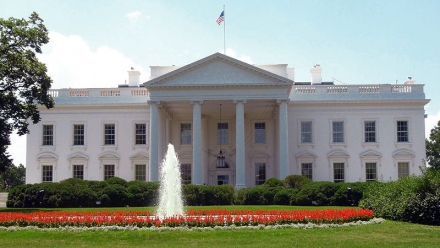Advocates are ramping up pressure on the White House to appoint a bipartisan advisory council made up of community leaders under the age of 24, that would advise federal agencies on issues important to young Americans and suggest ways to more effectively address their needs.
 The advocacy efforts have been emboldened by the introduction of bipartisan resolutions in both chambers of Congress calling for the creation of such an advisory body. A July report by the White House Council on Community Solutions also recommended that the federal government formally incorporate the input of young people in its decision-making by creating a presidential youth working group.
The advocacy efforts have been emboldened by the introduction of bipartisan resolutions in both chambers of Congress calling for the creation of such an advisory body. A July report by the White House Council on Community Solutions also recommended that the federal government formally incorporate the input of young people in its decision-making by creating a presidential youth working group.
“The most important thing for us is that we want to make it a respected and relevant group in Washington,” said Alex Wirth, a 19-year-old sophomore at Harvard University who leads the Campaign for a Presidential Youth Council. The campaign lists both Democrats and Republicans as its advisors, including CEOs of youth service organizations, corporate executives, a senior counselor for President George W. Bush and a deputy assistant to President Bill Clinton.
Modeled after existing youth councils that provide advice to mayors or governors in an estimated 400 localities around the nation, a President’s Youth Council would draw upon the best of the young people already serving as advisors to their local governments, Wirth said.
Local youth councils work on a variety of issues, Wirth said, citing as an example the San Francisco Youth Commission’s work on a transportation project that aims to make it easier for young people to get to school and to extracurricular activities.
Under his campaign’s proposal, municipalities would nominate one person from their local youth council for a federal role. Out of this pool of nearly 400 young people, the president and congressional leaders would choose 24 – a dozen from each major political party – to serve on the federal youth council, Wirth said.
The campaign proposes that private funding pay for the estimated $1 million annual cost of such a council. Each council member would be between 16 and 24 years old, represent the geographic and social diversity of the United States, and serve a 12-month term.
On Dec. 4, U.S. Sens. Scott Brown (R-Mass.) and Tom Udall (D-N.M.) introduced Senate Resolution 608 calling for a bipartisan President’s Youth Council that would reach out to young people around the country to gather their perspectives on national issues and then represent those views in discussions of federal policy. U.S. Sens. Jeff Bingaman (D-N.M.), Mark Begich (D-Alaska), Lisa Murkowski (R-Alaska), and Patty Murray (D-Wash.) co-sponsored the resolution.
U.S. Rep. John Larson (D-Conn.) introduced a similar resolution, H.J. Resolution 115, to the House on July 24, where it is currently in committee. According to the website Govtrack.us, its chances of passage are extremely low. The Senate resolution, however, appears to have a far higher chance of passage, according to Govtrack.
Ultimately, the most realistic prospect for the creation of such a youth council is through an executive order by the president, Wirth said.
Last spring, the Obama administration held a number of conferences, called the White House Young America series, to hear young people’s perspectives on social issues and to build connections between young community leaders.
In 2011, the administration appointed a White House Liaison to Young Americans, Ronnie Cho, who keeps this blog as part of his work.






























